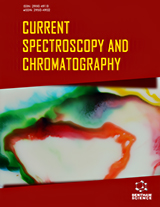Abstract
Introduction: The current investigation's objective was to develop an HPLC method along with a validated stability-indicating method and analyzing the behavior of levocetirizine degradation under various ICH-suggested stress conditions using LC-UV and LC-MS with a triple quadrupole mass analyzer.
Methods: Levocetirizine was exposed to various stressors while performing degradation studies. Using LC-UV and LC-MS methods, the degradation products formed in different stress environments were studied. The drug and degradation products were successfully separated using a Thermo Hypersil BDSC18 column having a dimension of 250 mm length, 4.6 mm internal diameter, and a particle size of 5.0 μm. The isocratic green mobile phase contained methanol:water in the proportion of 65:35 at a flow rate of 1 mL/min, and the selected wavelength for the UV detector was 230 nm.
Results: Significant degradation was found in acidic, alkaline, and oxidative conditions, whereas in photo and neutral conditions, no degradation products were formed. The drug was fairly stable in the solid state.
Conclusion: The values of m/z obtained from LC-MS after exposing the drug to different stress conditions were used to study fragmentation patterns, characterize the structure of the degradation product, and design the degradation pathway.
Graphical Abstract
[http://dx.doi.org/10.1358/dot.2004.40.5.850489] [PMID: 15319796]
[http://dx.doi.org/10.5530/ijper.51.4s.111]
[http://dx.doi.org/10.1556/1326.2018.00439]
[http://dx.doi.org/10.22270/jddt.v8i5-s.1977]
[http://dx.doi.org/10.7324/JAPS.2016.601008]




























